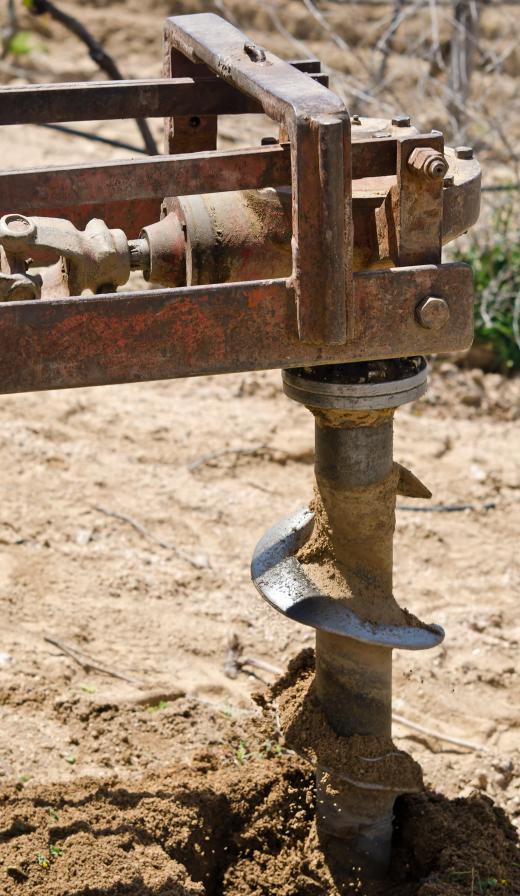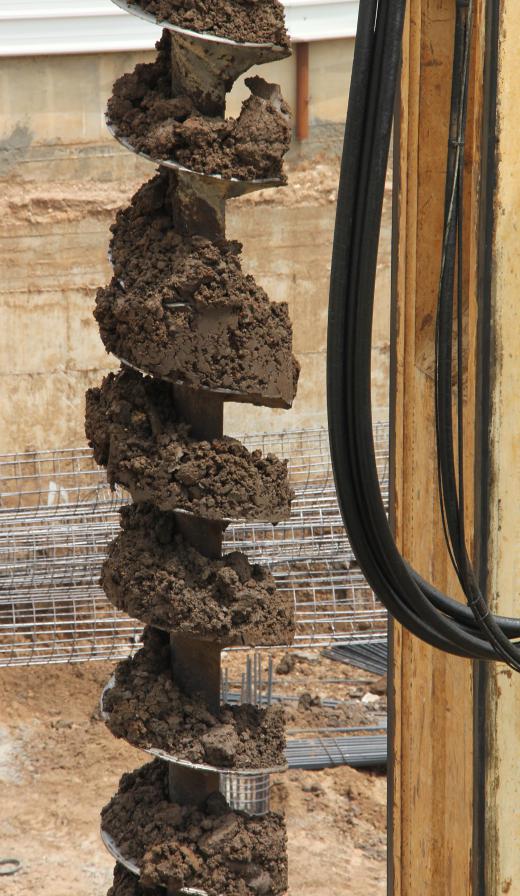Auger boring is a jack and bore drilling method typically used for installing steel pipe casing beneath an existing surface. This boring method generally utilizes an auger that is placed inside of a section of steel pipe. A large rectangular pit is usually dug on each side of the work area to accommodate the steel pipe and machinery used in this procedure. The pipe casing is jacked into place as the drilling is performed, and excess soil is transferred out of the pipe by the auger’s blades. After the steel pipe casing is in place, the auger is removed and the work pit refilled.
Auger boring is typically performed by placing an auger equipped with a cutting head inside of an 18-48 inch (46-122 cm) diameter steel pipe. The auger is then attached to the rotation shaft of a boring machine. Steel pipe casing is typically installed in 20 foot (6 m) lengths so an entry pit at least 35 feet (10.6 m) long is required to accommodate the combined length of the pipe and boring machinery. An exit pit is usually dug on the opposite end of the work area although it is not always required. Auger boring can be effectively used to install pipe sections with a maximum combined length of no more than 500 feet (152 m).

The basic auger boring procedure consists of the auger bit being rotated while the steel pipe casing is jacked into place. The rotation of the auger’s cutting bit loosens soil, rocks, and other material ahead of the passage of the pipe. The loosened material moves backward along the auger blades into the entry pit where it is removed by an excavator. When a section of steel pipe has been installed, the boring procedure is temporarily halted while another section is welded onto the first one. The boring procedure continues in this manner until the final section of pipe has been installed.

Auger boring generally works best in soils that are located above the groundwater table. When groundwater is present during a boring operation, special dewatering measures must be taken to prevent the steel pipe casing from being flooded with water. Once the final section of casing has reached the exit pit, the auger and cutting bit assembly is removed. After the boring machinery has been detached from the steel pipe, utility piping or cables are routed through the casing and any remaining space is usually filled with grout. Both the entry and exit pits are then backfilled with soil to complete the auger boring procedure.
